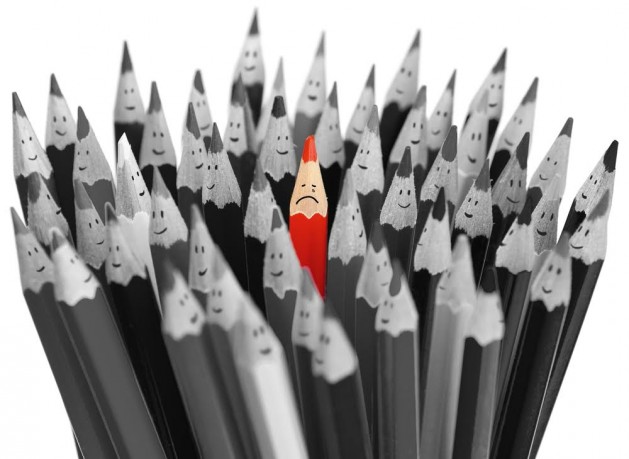
Everyone has a day once in a while when they feel sad. It’s totally normal to feel down when bad things happen, or even to feel the blahs after a two-week string of cloudy days. Real depression and anxiety are different, though, and up to 45 percent of people experience mental illness at some point in their lives. When depression, anxiety, or bipolar disorders are chronic conditions you live with, you get pretty good at hiding the symptoms. Here are some things people without mental illnesses just don’t understand.
Seeming Normal is Hard Work
When you have mental illness, you work really hard to fit in with the people around you. You know that most people don’t feel anxious or depressed. When you hear on a regular basis that attitude is a state of mind, it starts to feel like you must be feeling anxious because you don’t have the right perspective. But when you’re depressed or anxious, you can’t just snap out of it. Faking it to appear as normal as possible is a lot of work.
Everything is Exhausting
Getting through your normal activities can feel like running a marathon. Every day requires putting one foot in front of the other, all day long, just trying to get through it. Fatigue is a symptom of most mental illness and it’s one of the hardest ones to manage. It often starts with not sleeping well, and because you’re so tired it can take much longer to do ordinary tasks like shopping or laundry. Your self-esteem takes a nosedive when you’re overwhelmed by simple tasks.
You Can Be Lonely but Still Avoid People
The great irony about mental illness is that you need to see people more than ever, but you’re also more likely to push them away. This is part of the lie of mental illness: when your self-esteem is in a slump and you know that you’re a downer, you feel like people are just being nice when they offer to spend time with you. You think they couldn’t possibly really want to see you, so you try to spare them the trouble. But lack of contact with people makes mental illness worse, so it’s a vicious cycle.
More Irritable than Sad
Mental illness doesn’t always look like a sad, pretty girl sitting alone, staring out the window. Being depressed or anxious might actually look a lot more like you’re in a really grouchy mood. Most people think that bipolar disorder looks like extremes of happiness and depression, but it’s common to alternate between irritability and depression. The exhaustion you feel can leave little energy left for social niceties like patience and understanding.
It’s Hard to Enjoy Things You Used to Like
If you hear your friend is depressed, you might try to cheer her up by coming over with pizza and a movie. But don’t be surprised if her reaction is just a weak smile or leaves you feeling underwhelmed. Try not to take it personally: depression and anxiety take the joy out of things you used to enjoy. The best thing you can do for a friend who has mental illness is to just be patient and let them know you’re there for them. It won’t always be easy, but know that your efforts are appreciated even if you never hear the words “thank you.”


